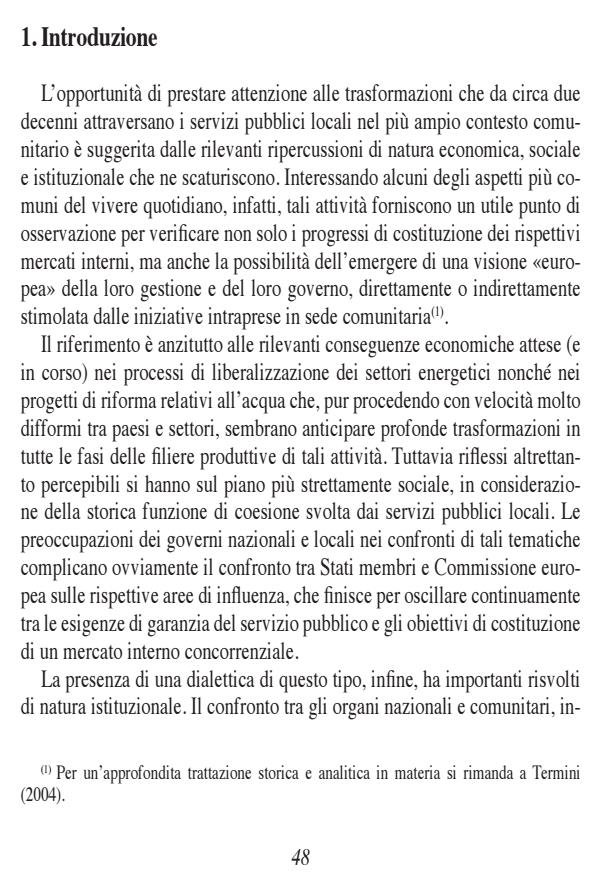I processi di riforma nei servizi pubblici locali nell’Unione europea: tra regolazione comunitaria e «istanze» nazionali
Titolo Rivista ECONOMIA PUBBLICA
Autori/Curatori Stefano Costa e Luisa Sciandra
Anno di pubblicazione 2008 Fascicolo 2007/3-4
Lingua Italiano Numero pagine 50 P. 47-97 Dimensione file 612 KB
DOI
Il DOI è il codice a barre della proprietà intellettuale: per saperne di più
clicca qui
Qui sotto puoi vedere in anteprima la prima pagina di questo articolo.
Se questo articolo ti interessa, lo puoi acquistare (e scaricare in formato pdf) seguendo le facili indicazioni per acquistare il download credit. Acquista Download Credits per scaricare questo Articolo in formato PDF

FrancoAngeli è membro della Publishers International Linking Association, Inc (PILA), associazione indipendente e non profit per facilitare (attraverso i servizi tecnologici implementati da CrossRef.org) l’accesso degli studiosi ai contenuti digitali nelle pubblicazioni professionali e scientifiche.
In last decades public utilities in eu have been at the centre of a great liberalization program. The constant confrontation between national and Community institutions fosters a convergence towards (partially) shared models, which are at times operated from a «top-down» position (by means of Directives and Regulations) and at other times from a «bottom-up» position (by means of mutual sensitisation efforts on both national and Community orientations). However, the confrontation is also complicated by the concerns of national and local Administrations with economic and social aspect of these sectors, making the process swing between the need to guarantee a public service and the aim of establishing a competitive internal market. This paper, focusing on electricity, gas and water sectors, analyses the current stage of the liberalization process, pointing out the gap between formal and substantial liberalization, as well as the institutional dialectic and its spin-offs. As a matter of fact, from an institutional viewpoint, Member States and Commission are still in search of a difficult balance between the Member States’ surrender of their sovereignty and the safeguard of their legacy in terms of a local administration of these sectors. From an economic viewpoint, the liberalization process tends also to make these sectors more similar across the countries than in the countries, inducing to substitute a «sectoral-based» classification for the traditional «national-based» one.
Stefano Costa e Luisa Sciandra, I processi di riforma nei servizi pubblici locali nell’Unione europea: tra regolazione comunitaria e «istanze» nazionali in "ECONOMIA PUBBLICA " 3-4/2007, pp 47-97, DOI: